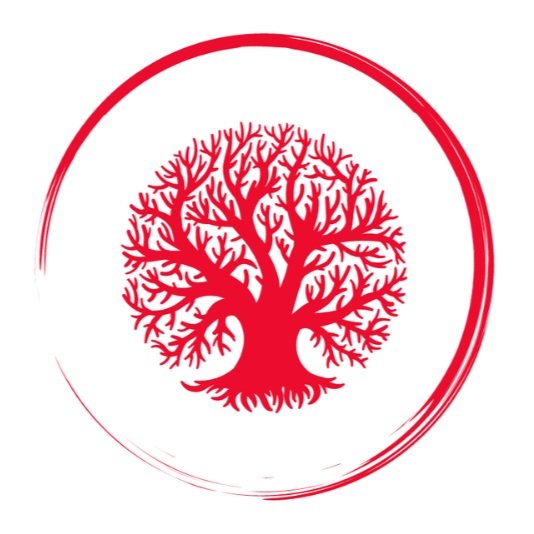How to Journal
When a new client starts working with me, I recommend they get into the habit of journaling for three reasons:
First, because writing is thinking. Our thoughts arrive like a mille-feuille, in numerous layers so densely packed that it’s difficult to tell one from the other. The act of writing requires more time than thinking and so allows us to unpack our thoughts and feelings and linger a while. When we write—especially by hand—a narrative emerges and our deeper wiser self witnesses: we make connections, understand motivations, and identify feelings and core beliefs driving our thoughts. Instead of knowing our views in an uncurious, fixed way, we courageously peer into, underneath and beyond them. Very often I start a sentence convinced I know how it’s going to end, and find by the end of it that I have ended up in a different and surprising space. In short, rather than skimming off the surface of our daily conscious activities (which is also fine as some days it’s difficult to connect deeper), we have time and space to become simultaneously archaeologist and artist of our whole human experience.
Second, in the process of coaching, you are going to discover a great deal about yourself, so best keep a record. Coaching also reveals what practices support you, and when we fall off the wagon and feel lost, we have a bespoke handbook that’s better than any off-the-shelf self-help. In addition, your journal holds a record of your progress for when you hit a plateau or forget how far you’ve come.
Finally, there is a ton of evidence that points to its effectiveness in helping people identify and accept their emotions, manage their stress, and ease the symptoms of depression and anxiety.
So when a client recently asked me how to journal, I realised that it’s not obvious what to do to get started and keep going. Here are some ideas:
1. Have a physical journal. Yes, I know this is obvious, but journaling is best done by hand, so have a journal you like to write in and a pen/pencil you like to write with.
2. Align your journal with your values. I value the senses so I make my writing a sensuous pleasure. I have a Uniball Gel Impact pen that writes like milk and a series of small coloured notebooks from The School of Life, where I am a faculty member. I choose a different colour book from the one that I just finished so together they make an aesthetically pleasing bundle. I also value freedom so I also choose these because of their portability for travelling, writing in bed, in a hammock, on a train and so on.
3. Pick a time of day and make that your journaling time. Make it a habit by doing it repeatedly. Fans of Julia Cameron’s The Artist’s Way swear by morning pages as you are closest to your most dreamful segment of sleep and so to your unconscious. Personally, I struggle with writing at that time. So for me it’s evening as a way to download before I sleep.
4. Set yourself a target: one page, 10 minutes, 5 things for which I am grateful. Our brains are motivated by achievable targets and we love lists.
5. See above for terrific—and psychologically helpful—prompts. These are much more helpful than having an empty page and a blank mind. Here are some more of my favourites:
a. Write yourself a letter from a compassionate friend or inner ally (listen to my Inner Ally Visualisation if you would like to connect with your Inner Ally). This is a hugely effective self-compassion activity. See Kristen Neff and Paul Gilbert for more ideas.
b. Similarly, get into a dialogue with your Inner Ally.
c. Write a letter to yourself at an earlier age. I sometimes write to my twelve-year old self who was reeling from my parents’ separation.
d. Identify a part of yourself (a psychological sub-personality or feeling) and write to it. So the part of you that’s disappointed, or angry, or ecstatically excited, or your inner child.
e. Write a letter to your future self. In all the visual and experiential glory of Burning Man a few years ago, the camp that most touched my heart comprised of a collection of small desks, each with pen, paper, envelopes and stamps. The organisers invited participants to write a letter from Burning Man to their future selves and to nominate a date they would like to receive it, any point in the next 5 years. Letters are beautiful as they are a form you know, have a defined audience or receiver, and have a beginning and end.
f. “How is your life different today than it was 3 years ago?”
g. “The thing I am putting off is….”
h. “Ten things I’d like to try/that give me joy…”
i. “Three things that went well today…” – even if all you did was wash, eat and lie in clean sheets, that’s a victory.
j. Random word or image. You can find these online if you search for writing prompts. There’s a story that George Harrison, suffering from writer’s block, decided to flick through a book when he was at his mum’s and to write his next song using the first words he saw as a title. He words he saw were “gently weeps”.
k. If you are feeling overwhelm and fearful, write sequentially under each of these prompts to help you manage our fears: “What do I fear will happen?/What might actually happen?/What action can I take now to lessen the chances or impact of it happening?/If it does happen, how can I recover?”
l. When something bugs you and you can’t let go, write after the following prompt “What’s really bugging me?”. Then write “And what’s really bugging me” and write again. Repeat six times. By the last “what’s really bugging me”, you may be in more touch with what’s really going on emotionally and be able to take appropriate action to address it.
m. Or just simply a check in? How am I feeling?
n. You don’t need to write. Draw a circle and then draw in and around that circle to reflect where you feel you are that day. You can leave that where it is, or use it as a prompt to start writing. Look back and compare these easy visual references.
6. There are some great book full of writing prompts for self-reflection and discovery. I recommend Jackee Holder’s 49 Ways to Write Yourself Well: The Science and Wisdom of Writing and Journaling. You can also find a journal that suits you with prompts such as Daily Greatness. I can’t recommend any as I don’t have personal experience, but it’s most important that you find one that suits you.
Photo credit: Bookblock






